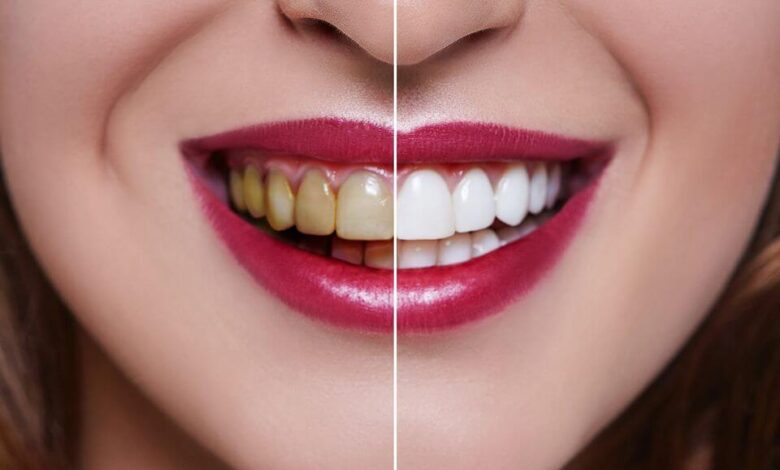What You Need to Know Before Teeth Whitening Treatment

Teeth whitening can improve the appearance of your smile, making your teeth shades lighter and helping to remove stains. But before starting a whitening treatment, it’s important to understand how the whitening process works, what results you can expect, and any potential risks involved. This guide will cover what you need to know before teeth whitening treatment, helping you make an informed decision. For safe and effective professional tooth whitening, visit Isca Dental, where experienced dental professionals can help you achieve the best results.
1. Not All Teeth Whitening Methods Are the Same
There are several ways to whiten teeth, but some work better than others. The most effective methods include:
- Professional tooth whitening by a regulated dental professional
- Home kits with whitening trays and bleaching gel provided by a dentist
- Over-the-counter whitening toothpaste or whitening products, which can help with surface stains but don’t provide dramatic results
The safest and most effective option is to have your teeth professionally whitened by a dental professional. They can ensure the whitening procedure is safe for your tooth enamel and gums.
2. Whitening Doesn’t Work for Everyone
Teeth whitening work best on natural teeth, but results vary depending on your existing colour and the cause of discolouration.
- Stains from coffee, red wine, and smoking respond well to whitening.
- Certain medications or fluorosis can cause deep discolouration that may not lighten completely.
- Crowns, veneers, and fillings do not change colour, which can lead to uneven results.
If you have discoloured teeth from medications or dental work, your dentist may suggest alternative treatments like veneers instead.
3. You May Experience Tooth Sensitivity
Tooth sensitivity is common after a whitening treatment, especially for those with sensitive teeth. The whitening agent in the bleaching gel, such as hydrogen peroxide or carbamide peroxide, can temporarily irritate your tooth enamel and gums.
To reduce sensitivity:
- Use a sensitive toothpaste before and after treatment.
- Avoid cold water and hot drinks for a few days.
- Ask your dentist to recommend a lower-strength whitening gel.
The sensitivity usually fades within a few months, but in rare cases, some patients experience longer-lasting effects.
4. Professional Whitening Provides the Best Results
Over-the-counter whitening products may improve your teeth white slightly, but professional bleaching achieves better and longer-lasting results.
A dental professional can:
- Customise the whitening trays to fit your mouth properly.
- Use stronger whitening agents than shop-bought home kits.
- Monitor the whitening process to protect your healthy gums and tooth enamel.
Some treatments, like laser whitening, can produce results in a single session, while bleaching trays worn at home may take a few weeks.
5. Avoid Certain Foods and Drinks After Whitening
After a whitening procedure, your teeth are more porous and can absorb stains more easily. To maintain your whiter teeth, avoid:
- Red wine, coffee, and tea
- Dark sauces like soy sauce and tomato-based sauces
- Acidic foods and fizzy drinks
- Smoking and tobacco products
Brushing your teeth regularly with a whitening toothpaste and visiting your dentist for routine check-ups will help maintain the results achieved.
6. Whitening Results Are Not Permanent
How long your whitening treatment lasts depends on your lifestyle. Over time, teeth can become discoloured again due to diet, age, and oral habits. Most patients need a top-up treatment every few months to maintain their desired result.
To extend the results:
- Brush with a dry toothbrush before using toothpaste to remove surface stains.
- Use a home kit recommended by your dentist for maintenance.
- Consider professional bleaching every few months if needed.
7. Whitening Must Be Done Safely
Not all whitening products are safe. Some online and non-dental products contain unregulated chemicals that can damage your tooth enamel and gums. Only a regulated dental professional can legally use high-strength whitening agents in the UK.
If you are thinking about whitening, always book a consultation with your dentist first. They will check your oral health and ensure you are a suitable candidate for treatment.
Ready to Whiten Your Teeth?
A whitening procedure can enhance your smile, but it’s important to choose the right method. Professional tooth whitening provides the safest and best results, while taking care of your teeth after treatment helps you maintain a bright appearance.
If you’re considering teeth whitening, speak to your dentist to find the best treatment for your needs.





